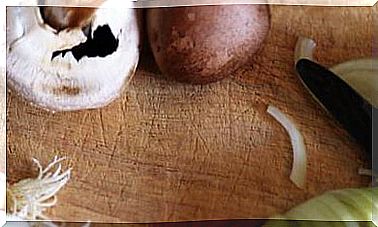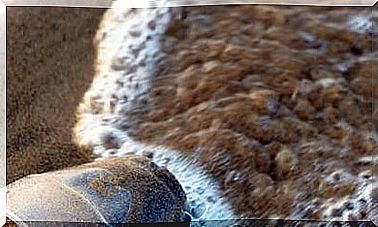Don’t Go Overboard With Ibuprofen!
It is the most widely used analgesic and anti-inflammatory drug, but the most recent studies claim that it increases cardiovascular risk.

Paracetamol and ibuprofen are among the best known and most widely used drugs, generally by self-medication. Nothing strange, because they are sold without a prescription to relieve pain, reduce inflammation or if we want to treat fever.
In the case of ibuprofen, it is an anti-inflammatory, a group of drugs that treats joint pain. Those who suffer from osteoarthritis and its pain know it well, although due to age, in general, they have a higher risk of cardiovascular problems.
Know the side effects of ibuprofen
The highest health organizations (FDA, WHO, Public Health Agency) have warned that ibuprofen, like many of the non-steroidal anti-inflammatory drugs (NSAIDs) have a harmful effect on cardiovascular health : in the case of ibuprofen they increase by more than 30% risk of acute myocardial infarction and embolism (according to Danish studies).
Because they are sold without a prescription, they send the dangerous message that they are drugs without side effects, and they give a false sense of security.
However, these drugs should be avoided by people with heart problems or heart risk factors (and liver, kidney …).
The risks are much greater than what was initially considered. The heart attack, although it is related to the dose, can occur even in the first week of administration of anti-inflammatories.
Anti-inflammatories were believed to be protective of the heart, because infantile aspirin (the most well-known anti-inflammatory) has been used classically as a preventive of strokes and excess blood aggregation.
But the other anti-inflammatories have a double action : one that seems to prevent heart attacks, and another that increases them, this second action prevailing over the first.
This harmful side effect seems to be related to the influence that these drugs have on platelet aggregation, which is the initial mechanism for clot formation, thrombosis, and embolism.
There is also a second factor, and that is that they stimulate the contraction of the arteries, reducing their caliber and increasing the risk of thrombosis.
Reduce the dose safely
According to the Spanish Society of Cardiology, you should not take more than 1,200 milligrams of ibuprofen per day. The Ministry of Health affirms, however, that the risk starts with 2,400 milligrams / day. As the average dose per capsule in Spain is 600 milligrams, with two a day we have already reached the precautionary limit.
In Spain there is a 400 mg ibuprofen presentation , but it is not used. It is not trivial, as it is the most used presentation in neighboring countries, where the 600-milligram dose is considered a “strong” medication.
Remember that inflammation, and subsequent pain, is a defense mechanism of the body. Systematically fighting inflammation is not good for your health: it inhibits the natural healing system and can increase the risk of cardiovascular, immune and degenerative diseases.
There are non-pharmacological anti-inflammatory remedies that can help us: exercise, rehabilitation, massage, acupuncture … They provide remarkable relief, sometimes insufficient, but that adds to the effect of drugs.
Take only the necessary drugs, and eliminate them when you feel better. It is necessary to allow the body to do an internal cleaning. Always start with the lowest dose, and increase if you do not notice improvement.
In treating fever in children, it is advisable to be even more cautious. It could be considered in a generic way that ibuprofen should not be used as an antipyretic if the fever does not exceed 38.5 degrees.
Natural alternatives to anti-inflammatories
It is not mandatory to resort to anti-inflammatory drugs such as ibuprofen, not without side effects. There are natural alternatives for treating joint pain.
- Enzymes: The enzymes bromelain and papain are used in the treatment of pain, and are especially effective in sports injuries. Take 2 tablets, 3 times a day.
- Devil’s claw : the devil’s claw is taken in capsules or infusion, about 2-3 grams daily and for minimum periods of 15 to 30 days. Its anti-pain and anti-inflammatory action is not immediate.
- Arnica: it is more effective externally, in creams or scrubs. Arnica tincture diluted 5% in alcohol is an excellent scrub for local relief of sore joints.
- Capsicum: products with capsaicin (the spicy principle of the chilli pepper) relieve herpetic and rheumatic pain (external route). Prolonged use irritates the skin and can cause burns.
Upgrade:
In April 2019, the French medicine agency (ANSM) published an alert to doctors and patients about the risks associated with ibuprofen and ketoprofen. According to the French authorities, these painkillers can worsen infections (angina, nasopharyngitis, otitis, cough, lung infection or chickenpox). For this reason they have requested an investigation on these drugs at a European level.
They have also offered rules for the safe use of these anti-inflammatories, such as using the lowest effective dose, stopping treatment as soon as symptoms disappear, not prolonging it for more than three days in case of fever, and not longer than five if there is pain.









